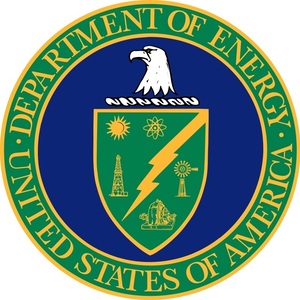DOE awards $46 million for 22 for waste-to-biofuels projects

August 31, 2022
BY U.S. Department of Energy
The U.S. Department of Energy today announced $46 million for 22 projects that will create biofuel energy to help decarbonize the transportation and power generation sectors. These innovative projects, led by universities, private companies, municipal resource management entities, and local governments, will develop waste conversion and carbon capture technologies to produce fuels from biomass and waste streams, and enable algal systems to capture carbon and turn it into alternative clean energy sources. Advancing renewable and sustainable energy sources through research and innovation will play a critical role in achieving President Biden’s goal of net-zero emissions by 2050.
“Turning waste and carbon pollution into clean energy at scale would be a double win—cleaning up waste streams that disproportionately burden low-income communities and turning it into essential energy,” said U.S. Secretary of Energy Jennifer M. Granholm. “Biofuel energy has the unique ability to decarbonize high-emitting sectors, create good-paying jobs, and significantly clear away barriers on the path to America’s clean energy future.”
Waste streams can cause a multitude of health impacts for surrounding communities as they often include gaseous carbon emissions from power plants, municipal solid waste, animal manure, wastewater residuals, and other organic materials. They are also more likely found in low-income communities, disproportionately affecting people of color and underserved neighborhoods. Waste streams are also an untapped, key feedstock for biofuel production. Algae, also a key feedstock for biofuels and products, can help significantly decarbonize the transportation and power generation sectors through carbon utilization technologies.
Advertisement
Advertisement
The selected project teams will support high-impact research and development to accelerate the growth of the bioeconomy by:
•Developing improved organisms and inorganic catalysts that support the next generation of low-carbon biofuels and bioproducts, turning costly waste streams into valuable bioenergy resources; and
•Increasing the capability of algal systems to capture carbon dioxide and use it to produce biofuels and bioproducts.
Advertisement
Advertisement
These projects are funded by DOE’s Bioenergy Technologies Office under the Waste Feedstocks and Conversion R&D funding opportunity and BETO and Office of Fossil Energy and Carbon Management under the Carbon Utilization Technology: Improving Efficient Systems for Algae funding opportunity.
Related Stories
A group of 16 senators, led by Sens. Chuck Grassley, R-Iowa, and Amy Klobuchar, D-Minn., on April 8 sent a letter to U.S. EPA Administrator Lee Zeldin urging the agency to increase RVO and account for SREs in the agency’s upcoming RFS rulemaking.
Tidewater expects to make final investment decision on proposed SAF project during second half of 2025
Tidewater Renewables Ltd. has reported that its biorefinery in Prince George, British Columbia, operated at 88% capacity last year. A final investment decision on the company’s proposed SAF project is expected by year end.
A group of small refineries on April 4 sent a letter to President Donald Trump urging him “to sent the multi-national oil and biofuels companies back to the drawing board to come up with a biofuels policy that does no harm.”
BDI-BioEnergy International has signed a contract with Ghent Renewables BV to begin the construction of a pioneering biofuel feedstock refinery plant. Construction is underway and the facility is expected to be operational by the end of 2025.
Gevo subsidiary announces agreement with Minnesota Soybean Processors to track and verify sustainable agriculture attributes
Verity Holdings LLC, a subsidiary of Gevo Inc., has partnered with Minnesota Soybean Processors (MnSP) to implement Verity’s proprietary track and trace software. The collaboration aims to unlock additional value through export premiums.
Upcoming Events










